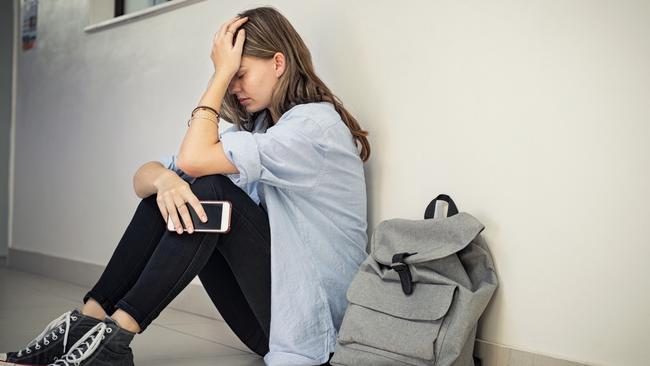Students say bullying in Tasmanian schools has far-reaching effects
Two former Tasmania students have given harrowing evidence of their experience of bullying and discrimination during their high school years.

Politics
Don't miss out on the headlines from Politics. Followed categories will be added to My News.
Two former Tasmania students have given harrowing evidence of their experience of bullying and discrimination during their high school years.
A parliamentary committee is holding public hearings into the subject and has received dozens of submissions from former students, schools and parents.
Reede Adams-Beckett appeared before the committee on Tuesday as a member of headspace Youth National Advisory Group.
He said the bullying he experienced throughout high school was attributed to “just boys being boys” but it was far more serious and had had lasting effects.
“I was punched, kicked, spat at and verbally abused almost every day for five years,” he told the committee.
“What made this situation worse was this was my friends. I felt trapped, and embarrassed. I was made the laughing stock of an entire grade.
“In year 10, I had my lowest year. I thought about suicide for the first time. I lost all confidence.
He told the committee that the effects had been far-reaching.
“Bullying and discrimination have impacted every aspect of my life, from my home life, personal relationships, my education, my connection to culture, and crucially, how I view myself,” Mr Adams-Beckett said.
“As a result, I still struggle with anxiety. I’m still reminded of the events of high school, and I find it hard to trust the people in my life.
Former Catholic student Sam Watson said the church’s stance on same-sex marriage had made coming out as gay in high school in 2015 more difficult.
“While most staff and students were supportive, I experienced a number of comments and indirect actions that simply would not have occurred to non-LGBTIQA+ students,” he told the committee
“Shortly after I came out, the Archdiocese circulated the Don’t Mess with Marriage booklet to every student, making it clear to me that as a person my school system did not want my rights to be equal.
“At the time, having only just come out, this felt like the school system I’d been in for eight years rejecting my identity and indicating it would not support people like me.”
The “Don’t Mess with Marriage” booklet was produced by the Catholic Church prior to the plebescite which led to the legalisation of same-sex marriage.
It said the church’s view was that for same-sex couples “pretending that their relationships are ‘marriages’ is not fair or just to them”.
In its submission to the Committee the Catholic Church said attempts to crack down on discrimination ran the risk of curtailing religious freedom.
“The suggestion that simply expressing the long-held views of the Catholic Church to a Catholic school community can be construed as `an abuse’ `wholly inappropriate’, `dangerous’ and causing immense harm’ is itself an extraordinary attack on freedom of religion,” the submission said.
“It appears that there are members of Parliament, including members of this committee who would like that to stop, potentially by force of law, from proclaiming parts of the Catholic faith which they happen to disagree with.
“This is a chilling development which needs to be forcefully called out by all those who value freedom of speech and freedom of religion, regardless of whether they share the views which have been expressed.”




